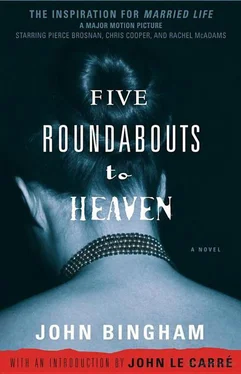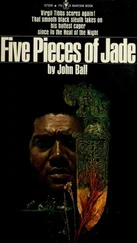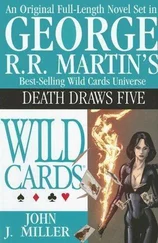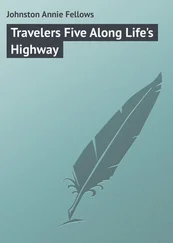John Bingham - Five Roundabouts to Heaven
Здесь есть возможность читать онлайн «John Bingham - Five Roundabouts to Heaven» весь текст электронной книги совершенно бесплатно (целиком полную версию без сокращений). В некоторых случаях можно слушать аудио, скачать через торрент в формате fb2 и присутствует краткое содержание. Жанр: Криминальный детектив, на английском языке. Описание произведения, (предисловие) а так же отзывы посетителей доступны на портале библиотеки ЛибКат.
- Название:Five Roundabouts to Heaven
- Автор:
- Жанр:
- Год:неизвестен
- ISBN:нет данных
- Рейтинг книги:4 / 5. Голосов: 1
-
Избранное:Добавить в избранное
- Отзывы:
-
Ваша оценка:
- 80
- 1
- 2
- 3
- 4
- 5
Five Roundabouts to Heaven: краткое содержание, описание и аннотация
Предлагаем к чтению аннотацию, описание, краткое содержание или предисловие (зависит от того, что написал сам автор книги «Five Roundabouts to Heaven»). Если вы не нашли необходимую информацию о книге — напишите в комментариях, мы постараемся отыскать её.
Five Roundabouts to Heaven — читать онлайн бесплатно полную книгу (весь текст) целиком
Ниже представлен текст книги, разбитый по страницам. Система сохранения места последней прочитанной страницы, позволяет с удобством читать онлайн бесплатно книгу «Five Roundabouts to Heaven», без необходимости каждый раз заново искать на чём Вы остановились. Поставьте закладку, и сможете в любой момент перейти на страницу, на которой закончили чтение.
Интервал:
Закладка:
But it’s different when you’ve got to watch it.
You don’t feel as you thought you would, when you see women with yellow faces trying to shield undernourished children from icy draughts on the slimy steps of a ruined station, and when you hear the desperate words with which despairing human beings have tried to comfort each other since the beginning of history.
That’s what hurts, thought Bartels, the sight of people being unselfish in their miseries; trying to protect others, trying to cheer them when their own hearts are pools of unhappiness; trying to nurse them when there are no medicines, to give hope when there is none.
The man on the spot gets no satisfaction out of mass revenge; it is a thing to be read about and to be savoured from afar. The ordinary man has to stand at a distance to inflict suffering; if he comes too close he is lost. He becomes the victim of pity.
It is in man’s nature to remove the cause of the pain, and if he cannot remove the cause, he will, as like as not, put the sufferer beyond the range of it. If he is a veterinary surgeon, he turns to the lethal chamber, and the sufferer sleeps. If he is a doctor, he may take equivalent action.
But for the suffering of the mind, of the broken heart which cries out in its agony of loneliness, the trusting heart which has been betrayed-for this kind of suffering, thought Bartels, there is no release.
There are mercy killings for the others, but none for these.
Nobody has ever reached out a hand to help them to sleep. And certainly nobody has ever killed to prevent such suffering.
“Or have they?” said Bartels aloud. “Or have they?” he repeated, above the noise of the engine. “You can’t tell. You can’t tell, because you can’t see into people’s hearts.”
By now he had reached the stage when he could coolly contemplate the use of altrapeine. The time when he had refused to face his thoughts, refused to understand why he did not wish his aunt Emily to see him with a book on poisons, that time was past now.
If I kill Beatrice, he thought bitterly, and if I am caught, I shall go down in history as a monster of callous cruelty. That’s funny, of course, because if I did not care about her mental suffering, I could just walk out and leave her flat, and I wouldn’t even risk my neck.
I could have all I want, without risk, without even great trouble, if I were the callous monster they will consider me if I kill and get caught.
“Yes,” said Bartels, aloud again, “yes, it’s funny, and it’s silly.”
Outside Cobham, he saw a man walking by the side of the road. As he passed, the man turned and signalled for a lift. Bartels swore, and pulled up some yards farther down the road. He heard the sound of the man’s feet pounding on the roadway as he ran to catch up with the car. Bartels opened the side door, and the man climbed in.
“How far are you going?” Bartels asked.
“Couple of miles farther on. Thanks for stopping, mate.”
The man was still breathless from running, but he began to fumble in his pocket, and pulled out a packet of cigarettes and opened it and offered one to Bartels: “Have a ‘Wood,’ mate?”
“Thanks. You’re out late.”
The man searched his pockets for matches, found one, and struck a light. He said nothing as he held the match for Bartels. Bartels glanced at him in the light of the flame. He was a middleaged man, dingily dressed, with a thin, stringy tie, a cloth cap, and a lean, bony face.
Bartels wondered why he was out.
He thought idly that he might be a burglar, except that he hadn’t a bag of tools; or a poacher, except that he wasn’t wearing the kind of clothes you associate with a poacher; and he looked too old for a man returning from a love assignation.
“You’re out late,” said Bartels again.
“I’ve been with my sister. My eldest sister.” The man drew on his cigarette.
“Whereabouts does she live?”
“She lived in Cobham. She died this evening.”
Burglar, poacher, lover, mourner, they all looked much the same. They all wore suits of clothes, and asked for lifts, and offered you cigarettes. Aloud Bartels said: “I’m sorry to hear that. Very sorry indeed.”
The man drew on his cigarette again. Bartels saw the red glow in the windscreen. The man said:
“I was happy to see her go, and that’s the bloody truth, mate. She’s been hanging on for seven months. Well, we’ve all got to go sometime.”
“That’s right,” said Bartels, “we’ve all got to go sometime.”
“They didn’t find out soon enough; that was the bloody trouble. You’ve got to catch it early with a growth; that’s what the nurse said. A good nurse she was, too. It was a happy release, and that’s the truth. A bloody happy release.”
Platitudes and cliches, one sneers at them, thought Bartels, but they have their uses. We’ve all got to go sometime. A happy release. And all the others, ranged neatly in rows, potted and tinned and ready to hand for all occasions; the ever-ready solace and balm for simple folk, the soothing ointment for untutored minds. Aloud he said:
“Well, none of us can live forever.”
“That’s a bloody fact,” agreed the man. “That’s true enough.” He said nothing for a few moments, then he added: “It was bad the last two days because the poison didn’t burst the walls of her stomach, it kind of went to her brain; that’s what the nurse said.”
Bartels felt slightly sick. Desperately he said: “Yes, well, it’s all over now. She’s at peace now.”
He hoped the man had finished, but he had to have a last fling.
“They didn’t find out early enough,” he repeated dully; “that was Mildred’s trouble. She was never one for running to bloody doctors. Not Mildred. There’s a turning at the bottom of the hill, if you’d stop there, mate.”
Bartels stopped at the turning, and the man got out and thanked him, and trudged off down the lane. Bartels threw away the end of the Woodbine and drove on.
It was all over now, he had said, and he was right. If you didn’t adopt that attitude about suffering, you went mad in the end. Suffering wasn’t permanent, except in hell, if there was a hell; there was always peace in the end, one way or the other, and then the pain was finished, and the fear. Finished and over and at an end, forever and ever; past, irrevocably past and done with.
That was the only way to cope with the suffering, the agony, and the fear in the world. Any other line of thought made you clutch your temples and groan aloud.
He drove through Esher and beyond, and turned right at the Kingston Bypass, and twenty-five minutes later crossed the Thames by Hammersmith Bridge. Hammersmith Broadway was deserted except for one policeman standing at a corner.
Bartels had a sudden desire to hear a strong, normal human voice unburdened by grief, untrammelled by worries, which would drag him from his own thought-world of speculation, and intrigue, and foreboding.
He stopped the car, and the policeman moved slowly over to him. Bartels lowered the nearside window, and the officer stooped down and looked through the window at him.
“Can I help you, sir?”
“Could you tell me the way to Alvington Road, please?”
“Yes, sir, it’s near Olympia. Take the road facing you, and after the second set of traffic lights, take the first turning on the left, and you’ll see it up on the right.”
“Thanks very much. It’s a nice night,” Bartels added, reluctant to let him go.
“Lovely night. Bit cold out here, though.”
The policeman laughed good-naturedly. Bartels envied him. To Bartels the policeman represented sanity: a plain man, an honest man, leading a regular life, without fears for the future or regrets for the past. After the miserable conversation with the bereaved man, after the loneliness of the drive in the dark, Bartels clung eagerly to human warmth and said:
Читать дальшеИнтервал:
Закладка:
Похожие книги на «Five Roundabouts to Heaven»
Представляем Вашему вниманию похожие книги на «Five Roundabouts to Heaven» списком для выбора. Мы отобрали схожую по названию и смыслу литературу в надежде предоставить читателям больше вариантов отыскать новые, интересные, ещё непрочитанные произведения.
Обсуждение, отзывы о книге «Five Roundabouts to Heaven» и просто собственные мнения читателей. Оставьте ваши комментарии, напишите, что Вы думаете о произведении, его смысле или главных героях. Укажите что конкретно понравилось, а что нет, и почему Вы так считаете.












